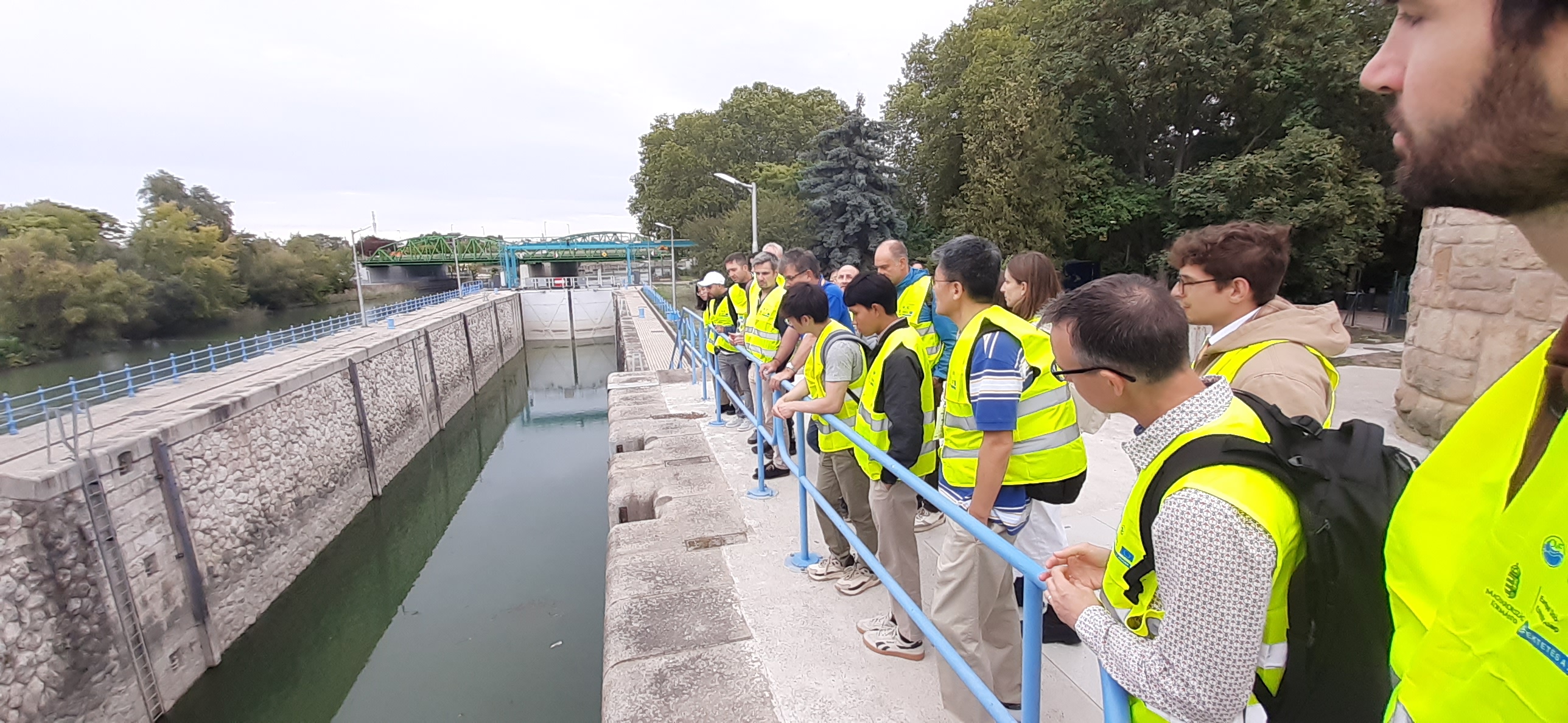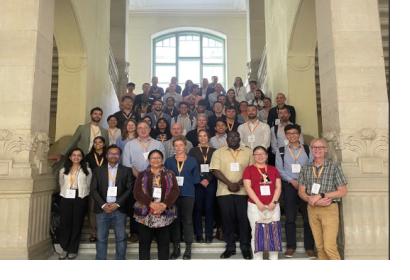Budapest, 18 September 2025 – The United Nations Office for Outer Space Affairs (UNOOSA), through its UN-SPIDER programme, joined global experts, scientists, and disaster risk managers at the 2025 Annual Meeting of the Global Flood Partnership (GFP), held from 15 to 17 September at the Budapest University of Technology and Economics (BME). The conference, focused on the evolving challenges and opportunities in flood protection, brought together over 70 participants from across five continents.
As a long-standing supporter of the GFP, UNOOSA co-sponsored this year’s meeting alongside the European Centre for Medium-Range Weather Forecasts (ECMWF). The event served as a vital platform to strengthen international collaboration in flood disaster risk reduction, an area where space-based data and geospatial technologies continue to play a transformative role.
In his opening remarks, András Nemeslaki, Vice-Rector for International Affairs at BME, emphasized the importance of international partnerships in addressing global challenges like floods, which are intensifying in frequency and impact due to climate change.
Bridging Space-Based Solutions and Ground Realities
A key contribution from the United Nations system came through a workshop on decision-making under uncertainty. The interactive simulation highlighted the delicate balance between acting on early flood warnings and managing economic or humanitarian losses. It underscored how uncertainty in forecasts can impact decisions during real-world flood events — a key concern addressed by UN-SPIDER in its advisory and technical support missions.
The conference also spotlighted innovative uses of satellite data, including presentations on the latest developments in flood modeling and real-time observations. A notable example was FloodPIN, an experimental satellite developed by RSS-Hydro (Luxembourg) that processes flood data directly on board and transmits only relevant information, improving response times in critical situations — a concept closely aligned with UN-SPIDER’s mission to ensure timely and effective access to space-based information during emergencies.
Local Knowledge Meets Advanced Technology
Recognizing the importance of inclusive approaches, the conference dedicated sessions to the role of local and indigenous knowledge in flood forecasting and resilience. Participants explored how traditional methods — including plant phenology, animal behavior, and celestial observations — can complement scientific models and enhance early warning systems.

A practical workshop simulated decision-making for refugee camp resettlement in flood-prone areas using uncertain flood model maps, field survey data, and open-source mapping tools. Such exercises reflect real challenges faced by humanitarian agencies and underscore the value of spatial data in planning safe and sustainable interventions.
A highlight of the event was the technical field visit to the Kvassay Barrage, a 100-year-old flood protection structure recently upgraded to address both flooding and drought conditions.
Looking Forward
The GFP conference concluded with a forward-looking panel discussion on improving the interface between scientific research, early warning systems, and operational responses. Despite advances, floods continue to cause significant socio-economic damage and casualties worldwide — reinforcing the urgency of global cooperation and technology integration.
The UN delegation expressed appreciation for BME’s hospitality and the outstanding organization of the event, which provided a dynamic and inclusive setting for dialogue, innovation, and shared action.
Read the BME press release here: UN researchers join discussions at international conference hosted by BME | BME central site

